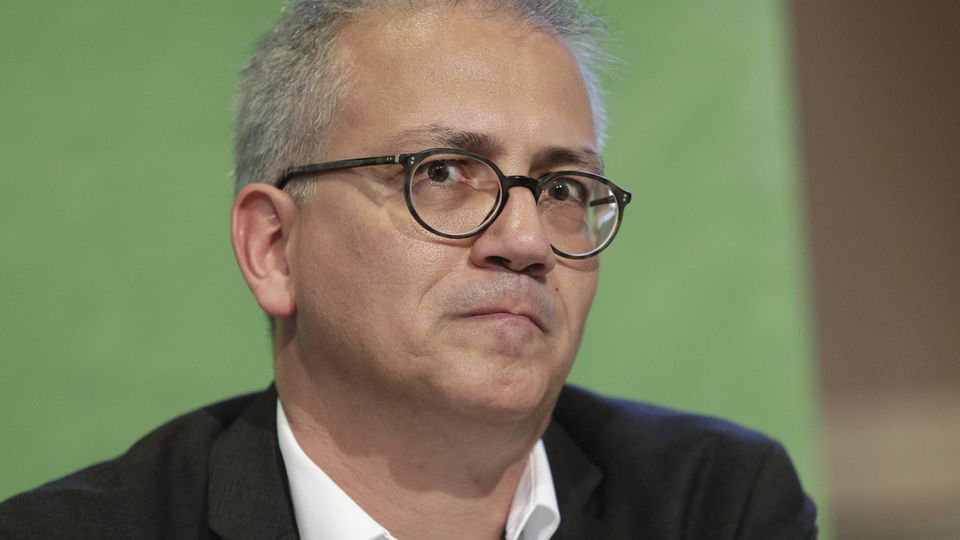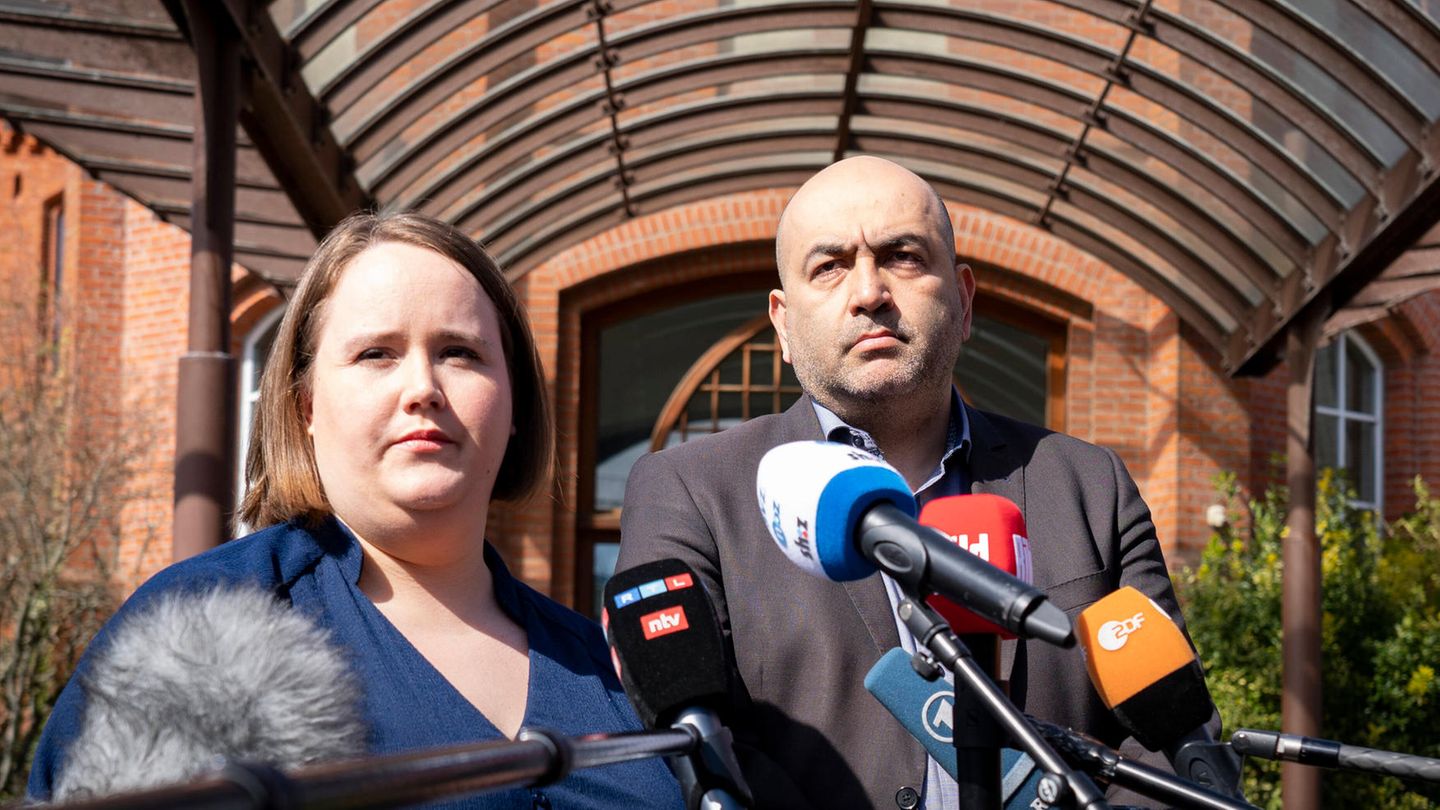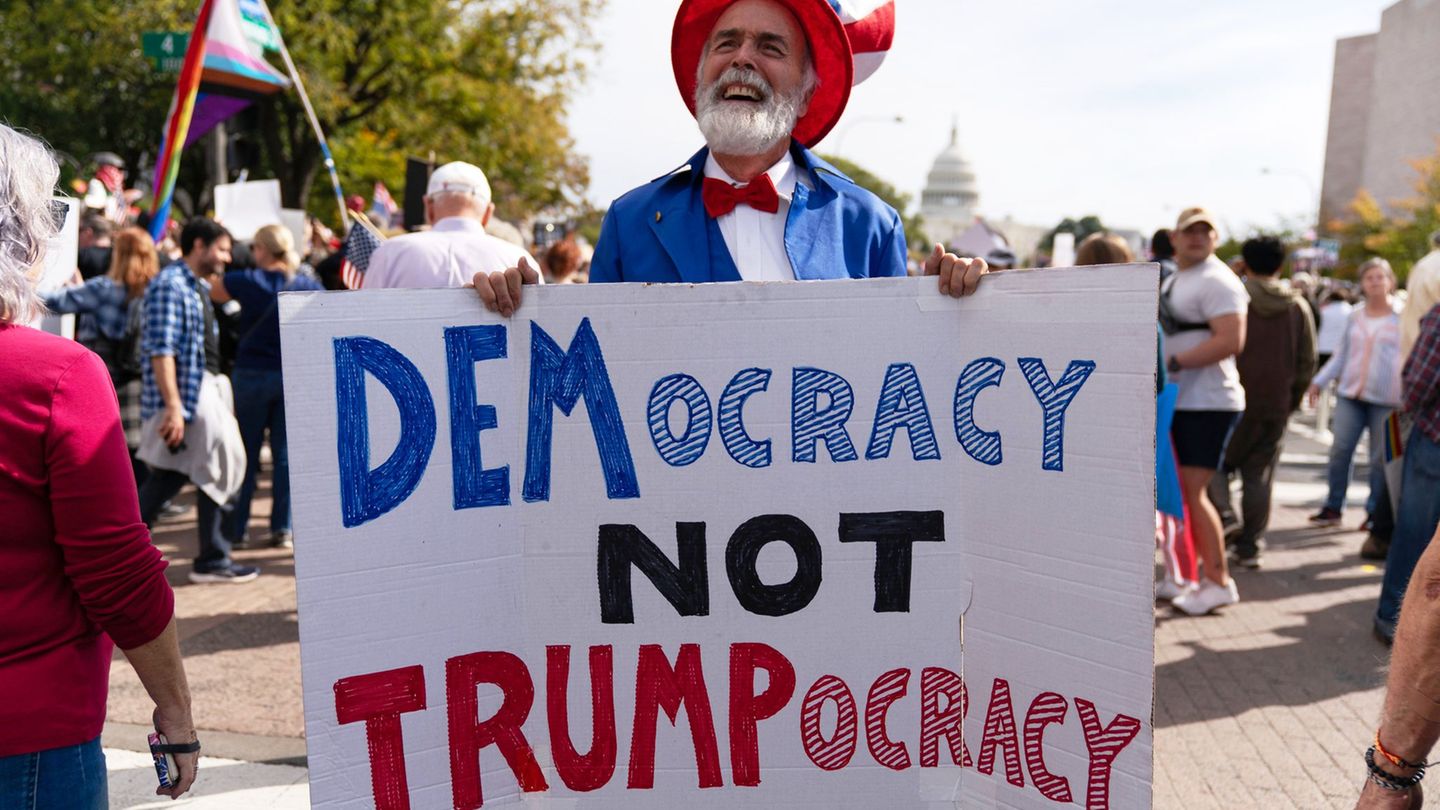ANALYSIS
CDU Prime Minister Boris Rhein no longer wants to govern with the Greens in Hesse. A rejection that the federal party also has to worry about.
This Friday, around five weeks after the state elections in Hesse, “good” is suddenly no longer good enough. In the state parliament in Wiesbaden, Hesse’s Prime Minister Boris Rhein said into his microphone, addressing the Greens: “We have had ten good years behind us.” But this sentence is for him CDU-Politician a farewell: He is not aiming for another government with the Greens. This is the result of weeks of exploration, at the end of which this press conference is now taking place. Instead, the Conservatives want to negotiate a coalition agreement with the Social Democrats.
It’s the end of black and green Hesse. And this end is a bitter defeat for him previous Hesse deputy head of government and economics minister Tarik Al-Wazir from the Greens. In 2013, the now 52-year-old was one of the architects for the first government made up of the CDU and the Greens in a large country, then under Prime Minister Volker Bouffier. As one of the most prominent pragmatists in his party, he ensured that the black-green Hessian decade could function. The collaboration was often described as “silent”. If you consider how fundamentally different the two parties are, this is not a given. The fact that it lasted ten years speaks for itself.
It’s all the more serious that it should now be over. This should not only give Al-Wazir but also his federal party something to think about. After all, nowhere else were the Greens less “ideological” than in Hesse, and nowhere else did they adapt to bourgeois positions with less resistance. Nevertheless, the previous coalition partner is now throwing them out of the well-running alliance. Why?
The reason for the failure: apparently the migration policy
There was evidence of this at the press conference at which the CDU justified its decision. It becomes clear: Especially with the topics Migration and internal security were probably not big enough for the CDU and the Greens. At the same time, the conservative election winners identified these as two of the most important issues for the new Hesse government.

When asked, Rhein and the CDU parliamentary group leader Ines Claus do not want to reveal exactly where the Greens’ problems are when it comes to migration. But that’s what they’re obviously talking about with the Hessian SPD has already agreed, allows conclusions to be drawn: they want a “real deportation offensive” and have agreed that they do not want to set any “new incentives” for irregular entry. The Integration Act should also stipulate “concrete integration obligations” for immigrants. And in the future they only want to assign refugees with prospects of staying in the municipalities. The Greens, on the other hand, have gone to the “pain threshold”, but are able to do so in many areas this “Don’t support change.
One could say that it is obviously the toughness in migration policy that the CDU was striving for that proved to be the downfall of the Hessian Greens. This is also a danger for the federal party. Pressure is also increasing on the traffic light government made up of the SPD, Greens and FDP to reduce the influx of refugees. In recent months, the discourse on the subject of migration has become significantly more intense, and Chancellor Olaf Scholz (SPD) also set a noticeably harsher tone in a “Spiegel” interview.
At the grassroots level, many people are struggling with the asylum course
How far can and do the Greens want to go? The party is likely to take this question to its breaking point. Party leader Ricarda Lang and Baden-Württemberg’s Prime Minister Winfried Kretschmann recently argued for a stricter migration policy. “Control and regression” are needed, they wrote in a guest article in the “Tagesspiegel”. “Humanity” can only exist “in the long term in order.”
At the base, however, many people have problems with the new sharp one Asylum course the traffic light, in the Green Party’s basic program, for example, deportations are seen as “the last resort”. There will be a Green party conference at the end of the month, where these questions are likely to be hotly debated. The lessons from the Hesse rejection could also be discussed there.
The Green Party leader Omid Nouripour, himself a Hesse, described the CDU’s decision as “completely incomprehensible”. But there are also other voices, such as the Green Finance Minister in Baden-Württemberg. Danyal Bayaz wrote on “X” that his party had to ask itself critically “why former coalition partners no longer see us as a modern force for change, but apparently more as a kind of burden in difficult times.”
Source: Stern
I have been working in the news industry for over 6 years, first as a reporter and now as an editor. I have covered politics extensively, and my work has appeared in major newspapers and online news outlets around the world. In addition to my writing, I also contribute regularly to 24 Hours World.




